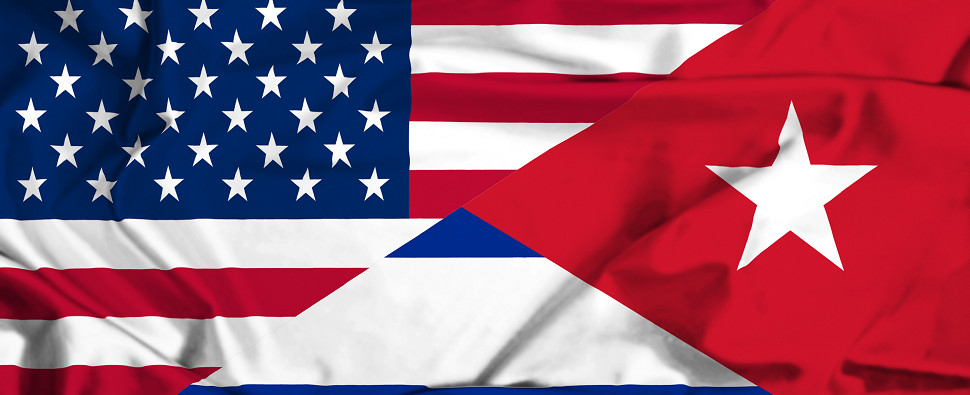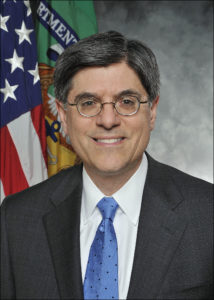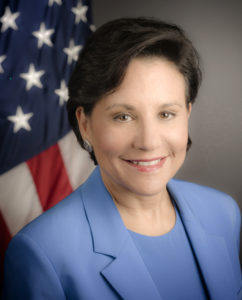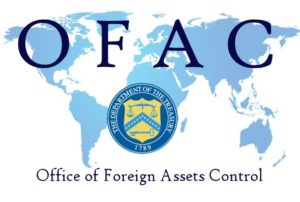
Treasury and Commerce announce further amendments to Cuba sanctions regulations
WASHINGTON – On Friday (Oct. 14) the Department of the Treasury’s Office of Foreign Assets Control (OFAC) and the Department of Commerce’s Bureau of Industry and Security (BIS) announced that new amendments to the Cuban Assets Control Regulations (CACR) and Export Administration Regulations (EAR), respectively will take effect on October 17, 2016, when the regulations are published in the Federal Register. These amendments will help to create more economic opportunity for Cubans and Americans, further implementing the direction toward Cuba that President Obama laid out in December 2014, said the release issued by the U.S. Treasury Department.

“President Obama’s historic announcement in December 2014 charted a new course for a stronger, more open U.S.-Cuba relationship,” said Treasury Secretary Jacob J. Lew. “The Treasury Department has worked to break down economic barriers in areas such as travel, trade and commerce, banking, and telecommunications. Today’s action builds on this progress by enabling more scientific collaboration, grants and scholarships, people-to-people contact, and private sector growth. These steps have the potential to accelerate constructive change and unlock greater economic opportunity for Cubans and Americans.”

“These amendments will create more opportunities for Cuban citizens to access American goods and services, further strengthening the ties between our two countries,” said U.S. Secretary of Commerce Penny Pritzker. “More commercial activity between the U.S. and Cuba benefits our people and our economies.”
Treasury’s release also emphasized that “the changes are intended to expand opportunities for scientific collaboration by authorizing certain transactions related to Cuban-origin pharmaceuticals and joint medical research; improve living conditions for Cubans by expanding existing authorizations for grants and humanitarian-related services; increase people-to-people contact in Cuba by facilitating authorized travel and commerce; facilitate safe travel between the United States and Cuba by authorizing civil aviation safety-related services; and bolster trade and commercial opportunities by expanding and streamlining authorizations relating to trade and commerce. These amendments also implement certain technical and conforming changes. OFAC and BIS are making these amendments in support of the process of normalizing bilateral relations with Cuba.”
To see the Treasury regulations, which can be found at 31 Code of Federal Regulations (CFR), part 515, please see here. To see the Commerce regulations, which can be found at 15 CFR parts 730-774, please see here.
Significant changes in the revised Treasury and Commerce regulations are outlined below:
HEALTH-RELATED TRANSACTIONS
Expanding Opportunities for Scientific Collaboration and Access to Medical Innovations
- Joint medical research. OFAC is issuing a new authorization that will allow persons subject to U.S. jurisdiction to engage in joint medical research projects with Cuban nationals. This authorization will encompass both non-commercial and commercial research.
- Cuban-origin pharmaceuticals. OFAC is issuing a new authorization that will allow transactions incident to obtaining U.S. Food and Drug Administration (FDA) approval of Cuban-origin pharmaceuticals. An additional authorization will allow the importation into the United States, and the marketing, sale, or other distribution in the United States, of FDA-approved Cuban-origin pharmaceuticals.
- Bank accounts. Persons subject to U.S. jurisdiction engaging in the aforementioned health-related activities will also be authorized to open and maintain bank accounts in Cuba for use in conducting the authorized business.
HUMANITARIAN-RELATED TRANSACTIONS
Providing Additional Grant Opportunities and Strengthening Cuban Infrastructure
- Grants, scholarships, and awards. OFAC is expanding the authorization for grants, scholarships, and awards to Cuba or Cuban nationals to include grants, scholarships, and awards related to scientific research and religious activities.
- Services related to Cuban infrastructure. OFAC is adding a new authorization that will allow persons subject to U.S. jurisdiction to provide services to Cuba or Cuban nationals related to developing, repairing, maintaining, and enhancing certain Cuban infrastructure in order to directly benefit the Cuban people.
TRAVEL-RELATED TRANSACTIONS
Supporting People-to-People Contact by Facilitating Authorized Travel and Commerce
- Importation of Cuban-origin merchandise as accompanied baggage for personal use. OFAC is removing the monetary value limitations on what authorized travelers may import from Cuba into the United States as accompanied baggage. This includes the value limitation on alcohol and tobacco products. Persons subject to U.S. jurisdiction will be further authorized to import Cuban-origin merchandise acquired in third countries into the United States as accompanied baggage, again without value limitations. OFAC is also removing the prohibition on foreign travelers importing Cuban-origin alcohol and tobacco products into the United States as accompanied baggage. In all cases, the Cuban- origin goods must be imported for personal use, and normal limits on duty and tax exemptions will apply.
- Remittances. Persons subject to U.S. jurisdiction will be authorized to make remittances to third-country nationals for travel by third-country nationals to, from, or within Cuba, provided the travel would be authorized by general license for a person subject to U.S. jurisdiction.
CIVIL AVIATION
Supporting International Aviation and Passenger Safety
- Safety-related services. OFAC is adding a new authorization that will allow persons subject to U.S. jurisdiction to provide civil aviation safety-related services to Cuba and Cuban nationals aimed at promoting safety in civil aviation and the safe operation of commercial aircraft.
TRADE AND COMMERCE
Bolstering Trade and Commercial Opportunities and the Growth of Cuba’s Private Sector
- Export-related transactions. OFAC is amending its general license authorizing certain transactions incident to exports and reexports authorized by the BIS to eliminate references to “100% U.S.-origin items.” This is intended to minimize and clarify the circumstances in which an export or reexport authorized by BIS requires additional licensing by OFAC.
- Consumer goods for personal use. BIS will generally authorize exports of certain consumer goods that are sold online or through other means directly to eligible individuals in Cuba for their personal use.
- Imports of previously exported items. OFAC is adding an authorization that will allow the importation into the United States or a third country of items that were previously exported or reexported to Cuba pursuant to a BIS or OFAC authorization. This authorization will also permit persons subject to U.S. jurisdiction to service and repair such items. Exporting or reexporting replacement items or items that have been repaired or serviced must be separately authorized by OFAC and/or BIS as appropriate.
- Contingent contracts. OFAC is adding an expanded general license that will authorize persons subject to U.S. jurisdiction to enter into certain contingent contracts for transactions currently prohibited by the embargo, provided that contract performance is made expressly contingent on prior authorization by OFAC and any other relevant federal agency, or on authorization no longer being required. Transactions ordinarily incident to negotiating and entering into such contracts will also be authorized.
- Financing. OFAC is making a technical correction to clarify that agricultural items, such as pesticides and tractors, authorized by BIS for export or reexport to Cuba are not subject to restrictions on payment terms. As required by the Trade Sanctions Reform and Export Enhancement Act, authorized exports and reexports to Cuba of agricultural commodities, such as poultry and corn, remain subject to the limited payment and financing terms of cash in advance or third country financing.
- Certain vessel transactions. OFAC is issuing a general license that will waive the restriction prohibiting foreign vessels from entering a U.S. port for purposes of loading or unloading freight for 180 days after calling on a Cuban port for trade purposes if the items the vessel carried to Cuba would, if subject to the EAR, be designated as EAR99 or controlled on the Commerce Control List for anti-terrorism reasons only.
- Transit of cargo. BIS will generally authorize air cargo to transit Cuba, complementing an existing general authorization for cargo transiting Cuba aboard vessels.

